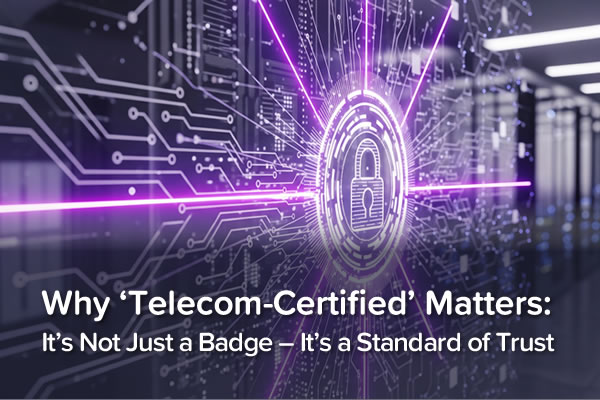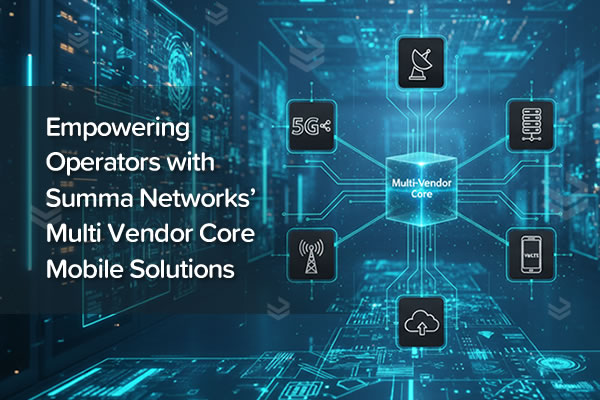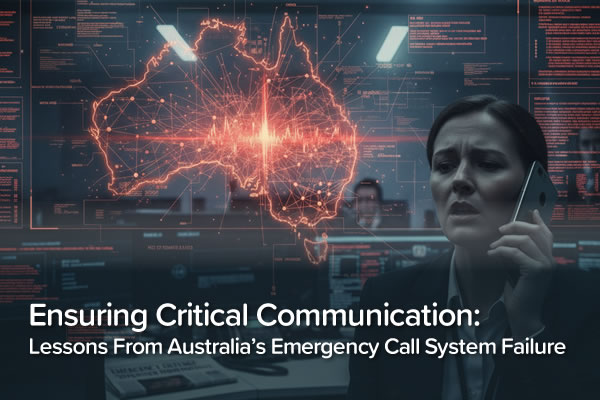The latest news and insights

Why 'Telecom-Certified' Matters: It’s Not Just a Badge – It’s a Standard of Trust
In a time when telecom networks are the backbone of global connectivity, trust is no longer a nice-to-have—it’s essential. The term "telecom-certified" has become shorthand for trustworthiness, reliability, and readiness for integration into critical infrastructures. But what does it really mean?
More than a badge, telecom certification represents a set of rigorous industry validations, proving that a product or solution is suitable for use in real-world operator environments, under strict technical and regulatory conditions.
What “Telecom-Certified” Really Means
To be telecom-certified is to meet the expectations of operators who demand high performance, interoperability, and future readiness. It typically includes:
- Conformance to industry standards like 3GPP, ETSI, or GSMA specifications
- Proven interoperability with other network components, often in multi-vendor environments
- Stability and scalability under high-availability, carrier-grade conditions
- Successful lab or field testing alongside existing network infrastructure
This level of certification gives operators confidence to deploy, scale, and maintain solutions with minimal integration risk and maximum predictability.
In a Mission-Critical Industry, Trust Is Non-Negotiable
Telecom is not just another industry. It’s the platform that supports emergency communications, banking, energy grids, and national security. A single integration failure or security vulnerability can cause service outages with wide-reaching impacts. That’s why certification isn't just procedural—it’s strategic. It helps reduce:
- Risk of service disruption
- Time to market for new services
- Legal and compliance concerns
It also accelerates procurement cycles and builds internal consensus among technical and commercial decision-makers.
ISO, Security & Beyond: Building a Broader Trust Framework
While "telecom-certified" often refers to technical interoperability and standards compliance, certifications like ISO 27001 (for information security) or GSMA’s NESAS (for security assurance in network equipment) play a complementary role.
These frameworks signal organizational maturity, robust internal processes, and long-term viability—factors increasingly important to operators under pressure from regulators and end-users alike.
Being telecom-ready today means more than just passing a lab test—it requires a holistic approach to quality, reliability, and security.
Certification as an Enabler, Not a Barrier
Some may view certification as a hurdle. In reality, it’s a gateway to collaboration, innovation, and long-term partnerships. Vendors and developers that invest in certification early on tend to integrate faster, scale more easily, and become trusted players in the global telecom ecosystem.
With the rise of 5G, Open RAN, IoT, and private networks, the need for modular, interoperable, and trustworthy solutions is greater than ever.
Conclusion: It’s a Standard That Connects Us All
“Telecom-certified” is no longer a technical checkbox—it’s a standard of trust in a mission-critical industry. It tells the world a solution is not just functional, but reliable, secure, and ready to perform under pressure.
As networks become more complex and distributed, certification will continue to be a shared language between operators, vendors, integrators, and regulators.
Because in telecom, trust isn't assumed. It's built—and certified.
Latest Blog

Empowering Operators with Summa Networks' Multi Vendor Core Mobile Solutions


